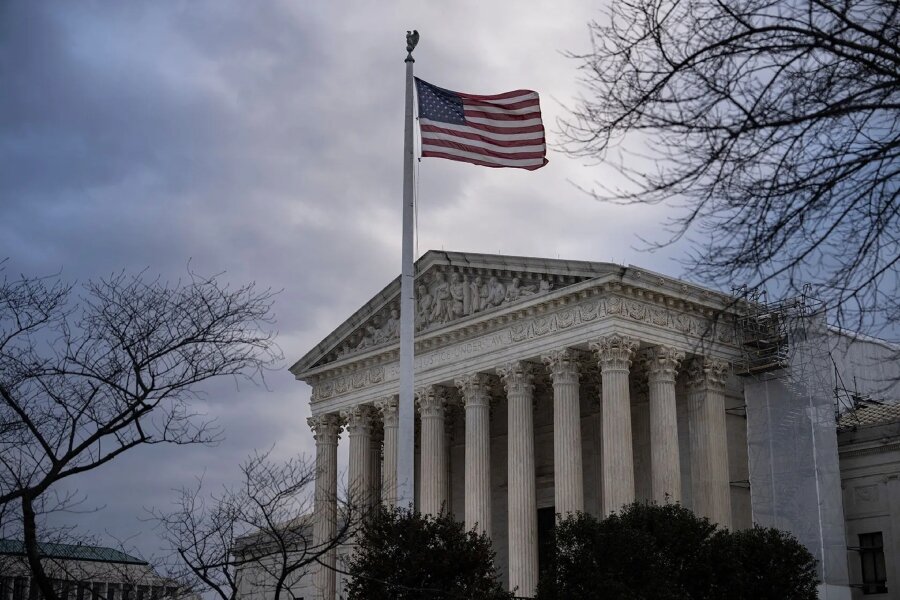The U.S. Supreme Court on Oct. 29 turned down Robert F. Kennedy Jr.’s emergency applications seeking to remove his name from ballots in the swing states of Wisconsin and Michigan.
Early voting in the Nov. 5 presidential and congressional election began on Oct. 22 in Wisconsin and on Oct. 26 in Michigan.
The Supreme Court denied the Wisconsin application without comment. No justices dissented.
The court also did not provide reasons for its decision on the Michigan application, but one justice, Neil Gorsuch, dissented.
Gorsuch said his dissent was based on “substantially the reasons given” by three judges on the U.S. Court of Appeals for the Sixth Circuit who dissented from that court’s Oct. 16 decision denying Kennedy’s request for rehearing.
One of those judges, Amul Thapar, said the question of whether “forcing a person onto the ballot compel[s] his speech in violation of the First Amendment” should be examined by the full circuit court.
“The repercussions of that question are enormous. If a candidate can’t stop his name from appearing on the ballot, could battleground states put President Joe Biden back on their ballots? Could states put anyone they wanted on their ballots (in violation of their election laws)?”
Biden, a Democrat, withdrew from the 2024 presidential contest on July 24.
“These important questions implicate the integrity of our democracy and its elections,” Thapar stated.
Kennedy, a Democrat-turned-independent, suspended his campaign on Aug. 23 and endorsed former President Donald Trump, the Republican presidential candidate.
Kennedy has tried to remove his name from ballots in hotly contested states since then. He previously said he was doing this to avoid siphoning votes away from Trump in swing states while leaving room for a longshot bid for the presidency in a possible so-called contingent election, which would put the presidency in the hands of the U.S. House of Representatives in the event of an electoral college deadlock.
The Wisconsin application was filed after the Wisconsin Supreme Court on Sept. 27 rejected Kennedy’s appeal of a lower state court ruling holding that candidates may only be taken off the ballot if they die.
Wisconsin told the justices in an Oct. 28 filing that because ballots have already been printed and voting is currently in progress it would be too difficult at this point to strike Kennedy’s name from the ballot.
Removing Kennedy’s name “one week before the general election … would require the county and municipal clerks of Wisconsin to handcraft and apply millions of stickers to Wisconsin ballots in order to cover his name—at least those ballots that have not already gone to voters and been returned,” the state said.
In his Oct. 23 application, Kennedy said it was his “absolute right” to endorse Trump for president. Not appearing on the ballot “in the critical swing state of Wisconsin” helps to convey his constitutionally-protected message that “he wants everyone who will listen to him to vote for Trump.”
“That is core political speech and it’s protected under the First Amendment,” Kennedy said.
Share your thoughts by scrolling down to leave a comment.













